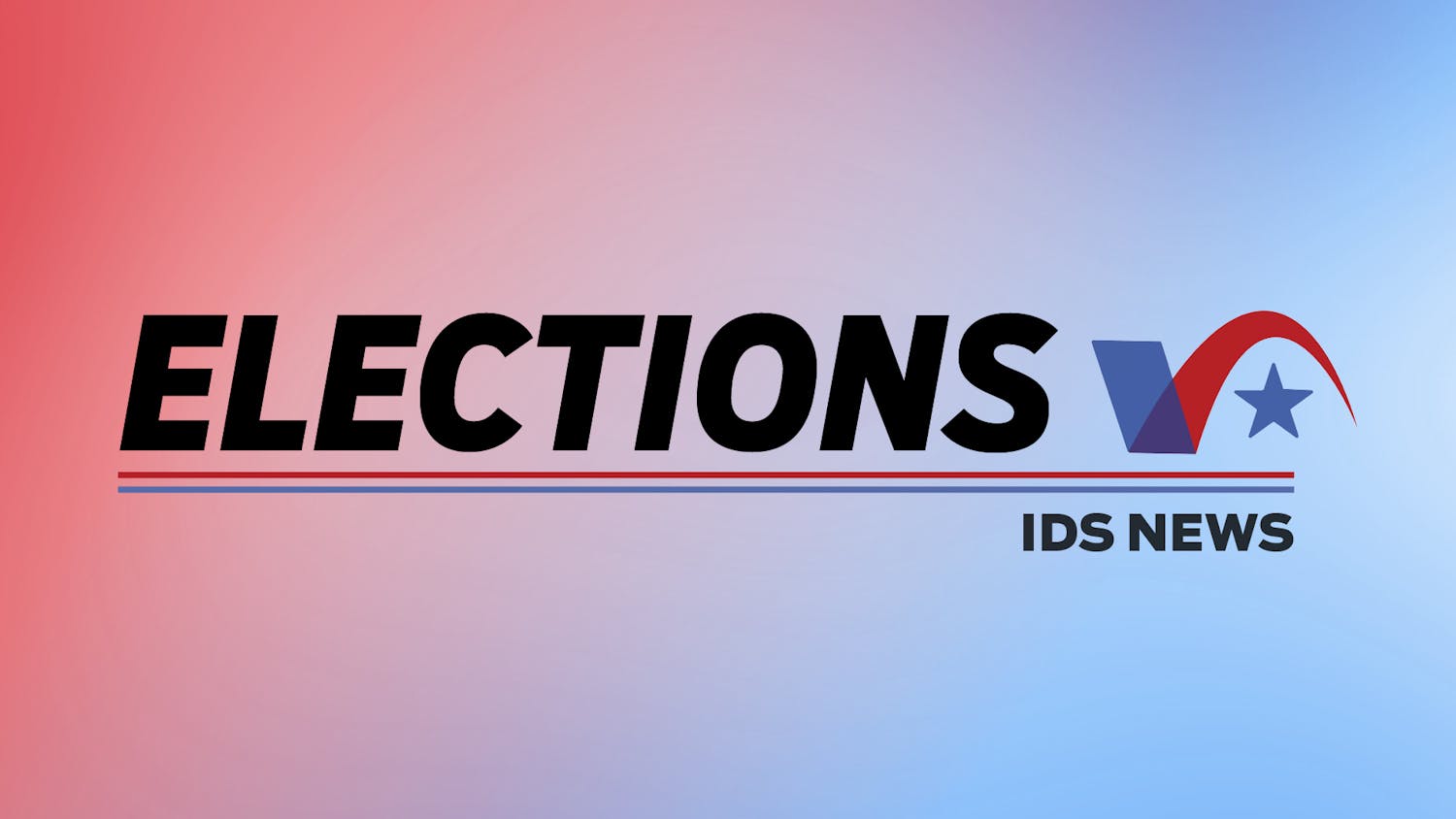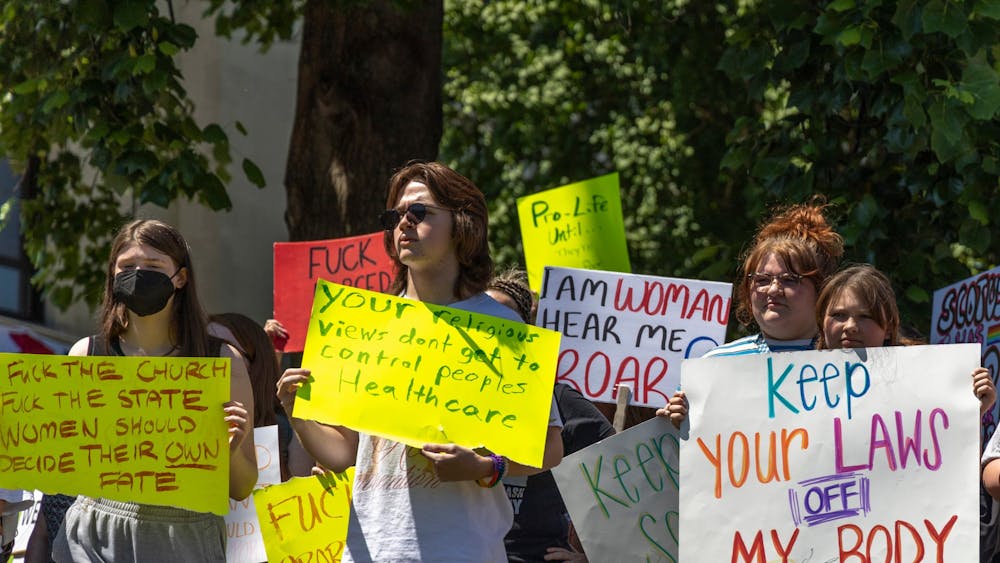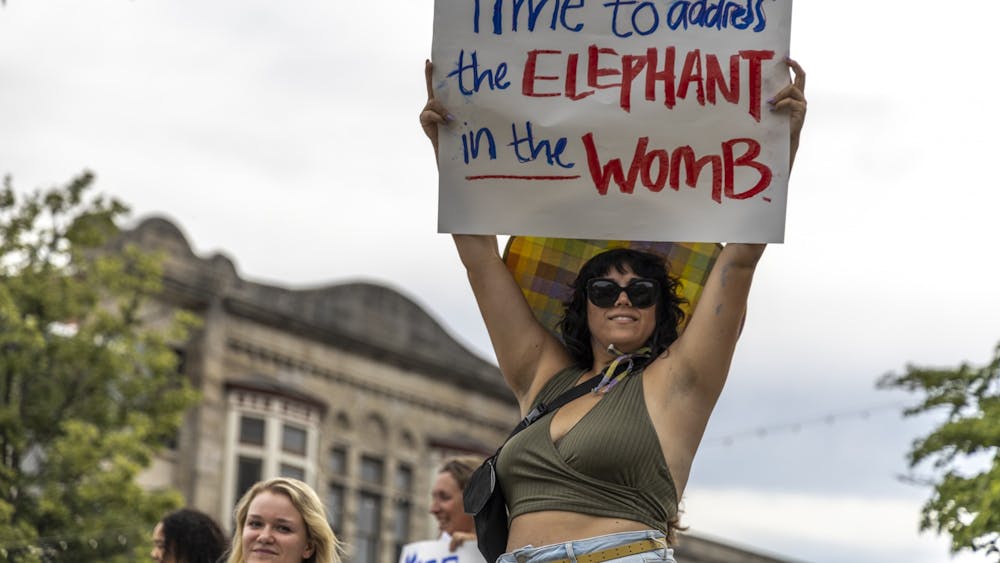The race for Indiana’s 9th Congressional District is coming to a close, and voters will choose Tuesday between two familiar candidates and one newer one. Mike Sodrel (R) and incumbent Rep. Baron Hill, D-9th, have contested Southern Indiana’s congressional seat each election since 2002, making the 9th District one of the most competitive swing districts on the national stage. At the same time, Eric Schansberg, an IU-Southeast New Albany professor of economics who ran in 2006, is shaking up the race with an independent perspective.
THE INCUMBENT
As a four-term representative, Baron Hill has spent eight of the last 10 years filling Indiana’s 9th District Congressional seat. The fiscally conservative Democrat from Seymour, Ind., is considered a moderate liberal, and though he leans to the left on issues such as health care and the war in Iraq, Hill is against gun control and has been in favor of stricter laws on issues such as immigration.
Hill first won his House seat after longtime representative Lee Hamilton retired, beating Republican Jean Leising by about 5,000 votes in the November 1998 election. After defeating Sodrel in 2002, Hill was named co-chair of the Blue Dog Coalition, a group of moderate Democrats that is known for being fiscally conservative. Hill voted twice against federal bailout packages for financial institutions in October.
“I think a lot of what happened on the housing markets and financial markets is a result of a lack of regulation,” Hill said in a recent interview with the Indiana Daily Student. “My opponent, I think, would argue that there needs to be less regulation. We got into this economic problem that we have right now because there weren’t regulations in place to stop some of the things that were going on.”
A strong supporter of Democratic presidential candidate Sen. Barack Obama, Hill appeared at an Oct. 23 Obama rally in Indianapolis, where Obama called Hill a “good friend.”
Hill said he believes this could be the first year Indiana goes blue since Lyndon B. Johnson won the state in 1964.
“For students, and young people in particular, this is a great opportunity for them to really make a difference in how this election is going to turn out in Indiana,” Hill said. “If they vote like I think they’re going to vote, I think most of them are going to vote for Senator Obama, and they could be the critical group of voters that determines this election.”
Though he refused to predict who will vie for the 9th District in 2010, Hill said this race has particular significance.
“I find it incredible that Indiana is a battleground state,” he said. “It’s one of the few swing districts in America, and that’s one of the reasons it’s had so much national attention.”
THE CHALLENGER
Mike Sodrel first challenged Hill for the 9th District in 2002, two years after Republican candidate Michael Bailey lost handily – by 10 percent of the vote. A self-described “lifelong trucker” from New Albany, Ind., Sodrel became known for driving an 18-wheeler truck on the campaign trail (though it should be noted Sodrel is an executive at Sodrel Truck Lines Inc., a family business).
Campaigning on a platform of local issues such as job creation, taxes and conservative values, Sodrel has shied away from regulation of financial markets and taxes of any kind. Though he said doing nothing to help the economy would have been “the wrong choice,” Sodrel said he, like Hill, was opposed to the financial bailout package passed by Congress in October.
“The amount of debt that this Congress has put on our children and grandchildren is just breathtaking,” he said. “The budget deficit will probably exceed $400 billion, then there was a $150 billion economic stimulus. Just add the numbers up, it’s enough to boggle your mind.”
Trying to win back the seat he pried away from Hill in 2004, Sodrel said Hill has brought about change, but not the right kind.
“Well we got change – the price of gasoline has gone up, unemployment has gone up, consumer confidence has gone down and the economy has slowed to a crawl,” Sodrel said. “And now he endorses Senator Obama for president and says we need more of this kind of change.”
Sodrel’s suggestions for improving the economy include suspending the capital gains tax, instituting tax amnesty for Americans bringing in money from overseas, and “taking the lid off the FDIC.”
THE THIRD-PARTY CANDIDATE
Dr. Eric Schansberg entered the Sodrel-Hill fray in 2006. Running as an alternative to “the usual government,” Schansberg is a Libertarian who has been critical of both Sodrel and Hill.
“We’ve always seen this as a platform to talk about issues that (Sodrel and Hill) are unable or unwilling to talk about,” Schansberg said in an interview. “It’s also been an experiment to see what a highly-credible third-party candidate can do, because people say they want change, and I guess we’ll see how much.”
Schansberg got 4 percent of the vote in 2006, running on a similar platform. Having taught at IU-Southeast New Albany as a professor of economics, Schansberg said he is better prepared to be a congressman because of his intimate knowledge of some of the core issues in this election.
“I’m more knowledgeable about public policy, and as an economist, someone who’s taught and written about these things for more than 20 years.” he said. “I just have more expertise.”
Schansberg claims to be the “only fiscal conservative in the race,” saying watchdog groups like the National Taxpayers Union would give him an “A” on fiscal reform, while giving Sodrel a “C” and Hill an “F.”
But his biggest argument against the Democratic and Republican candidates is that they’re part of a faulty political system.
“I would encourage students to become engaged and not settle for the two major parties,” he said. “And if they’re voting for Obama because he promises change, why not extend that to Congress and make real change?”
Trading places
Indiana’s 9th Congressional District race is a rematch from 2006
Get stories like this in your inbox
Subscribe




